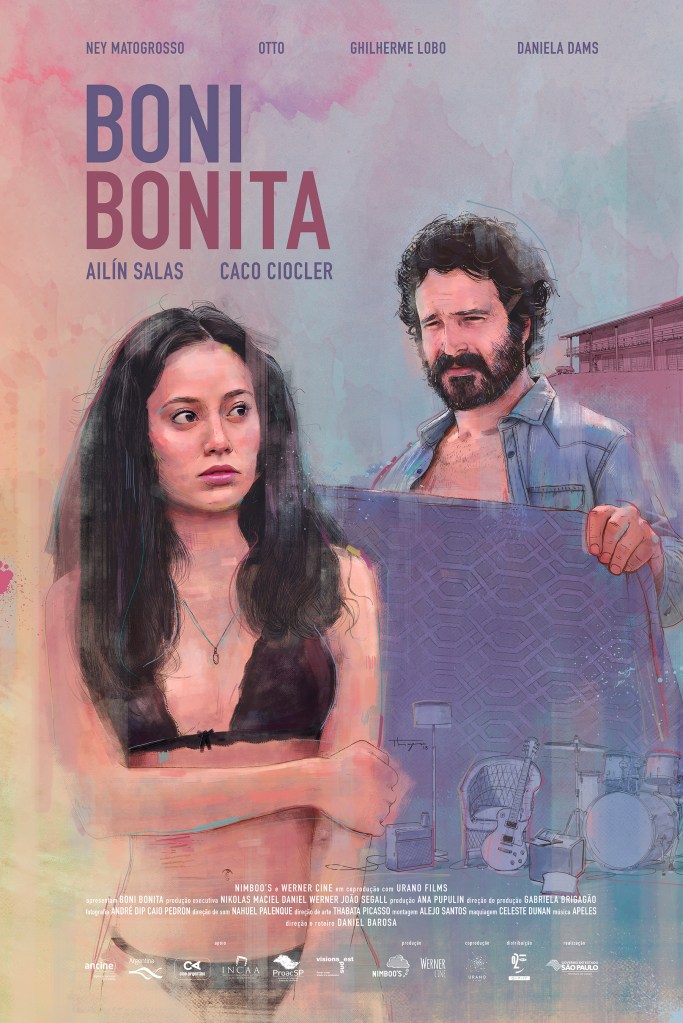
Slamdance: Boni Bonita

Boni Bonita, directed by Daniel Barosa, is a Brazilian-Argentine film, mostly in Portuguese, about a rebellious young woman and an aging musician. The story takes place over nine years, starting in 2007 and ending in 2016, and follows Beatriz (Ailin Salas) as she struggles with the loss of her mother, her complicated relationship with her father, self-harm and the musician who seems just out of her reach. Rogerio (Caco Ciocler), has his own struggles. He lives in the shadow of his grandfather’s musical success and has casual rendezvous with women as a way to avoid something more meaningful. Over the years Beatriz and Rogerio reunite at Rogerio’s summer home. The film explores what it means to come of age and also to go through a mid-life crisis.
The title is a reference to a song by classic Argentine singer Alberto Cortez. Rogerio plays the song for Beatriz and often calls her “Bonita”. Filmed over three years, Boni Bonita was shot in 16mm, super 16mm and digital. An inventive technique that gives the film a grainy, fuzzy appearance, as though we were watching filtered memories. According to the director Barosa, the story is based on his own experiences of the indie music scene of Sao Paolo Brazil.
I couldn’t engage with Boni Bonita no matter how hard I tried. I enjoyed the mixed media style and Ailin Salas’ performance in particular. The characters and the story didn’t draw me in and I couldn’t help but feel disconnected.
Boni Bonita is distributed by Nimboo’s Films and had its premiere at Slamdance 25 as part of the Narrative Feature Competition. It’s the only film from Latin America at the festival. Boni Bonita was a finalist for the Guioes, selected for the French Workshop Eave on Demand and a finalist for best original screenplay at the Havana Film Festival among other honors.
